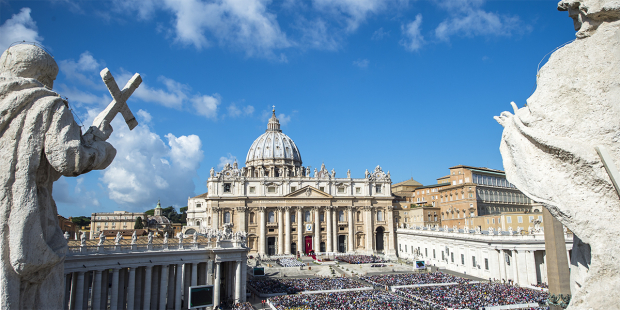Works, Confession, Communion: advice for Lent

THE SEVEN WORKS OF CORPORATE MERCY
1. Feed the hungry.
2. Feed the thirsty.
3. Dress the nudes.
4. To house pilgrims
5. Visit the sick.
6. Visit prisoners.
7. Bury the dead.
THE SEVEN WORKS OF SPIRITUAL MERCY
1. Advise the doubters.
2. Teach the ignorant.
3. Admonish sinners.
4. Comfort the afflicted.
5. Forgive offenses.
6. Patiently enduring harassing people.
7. Pray to God for the living and the dead.
CONFESSION AND EUCHARIST
29. When should Holy Communion be made?
The Church recommends that the faithful who participate in the Holy Mass also receive Holy Communion with due instructions, prescribing their obligation at least at Easter.
30. What is required to receive Holy Communion?
To receive Holy Communion one must be fully incorporated into the Catholic Church and be in a state of grace, that is, without mortal sins. Those who are aware that they have committed a mortal (or serious) sin must approach the Sacrament of Confession before receiving Holy Communion. Also important are the spirit of recollection and prayer, the observance of the fast prescribed by the Church (*) and the humble and modest attitude of the body (in gestures and clothing), as a sign of respect for Jesus Christ.
(*) Regarding the fast that must be observed to receive Holy Communion, the provisions of the Sacred Congregation for Divine Worship of 21 June 1973 establish the following:
1 - To receive the Sacrament of the Eucharist, the communicants must have been fasting for one hour of solid food and drinks, except for water.
2 - The time of the Eucharistic fast or of abstinence from food and drinks is reduced to about a quarter of an hour:
a) for patients hospitalized or at home, even if not bedridden;
b) for the faithful advanced in age, both in their home and in a retirement home;
c) for sick priests, even if not forced to stay in hospital, or for elderly priests, whether they celebrate Mass or receive Holy Communion;
d) for people involved in the care of the sick or the elderly and for the relatives of the patients, who wish to make Holy Communion with them, when they cannot, without discomfort, observe the fast of one hour.
31. Whoever communicated in mortal sin would receive Jesus Christ?
Whoever communicated in mortal sin would receive Jesus Christ, but not his grace, rather he would commit a horrible sacrilege (cf. 1 Cor 11, 27-29).
32. What does preparation before Communion consist of?
The preparation before Communion consists in pausing for a few moments to consider Who we are going to receive and who we are, doing acts of faith, hope, charity, contrition, adoration, humility and desire to receive Jesus Christ.
33. In what does thanksgiving after Communion consist?
Thanksgiving after Communion consists in being gathered together to worship within us, with living faith, the Lord Jesus, showing him all our affection, our gratitude and presenting to him with confidence our needs, those of the Church and of the whole world.
34. How long does Jesus Christ remain in us after Holy Communion?
After Holy Communion, Jesus Christ remains in us with his grace until he mortally sins and with his true, real and substantial presence he remains in us until the Eucharistic species are consumed.
35. What are the fruits of Holy Communion?
Holy Communion increases our union with Jesus Christ and with his Church, preserves and renews the life of grace received in Baptism and Confirmation and makes us grow in love of neighbor. By fortifying us in charity, it erases venial sins and preserves us from mortal sins.